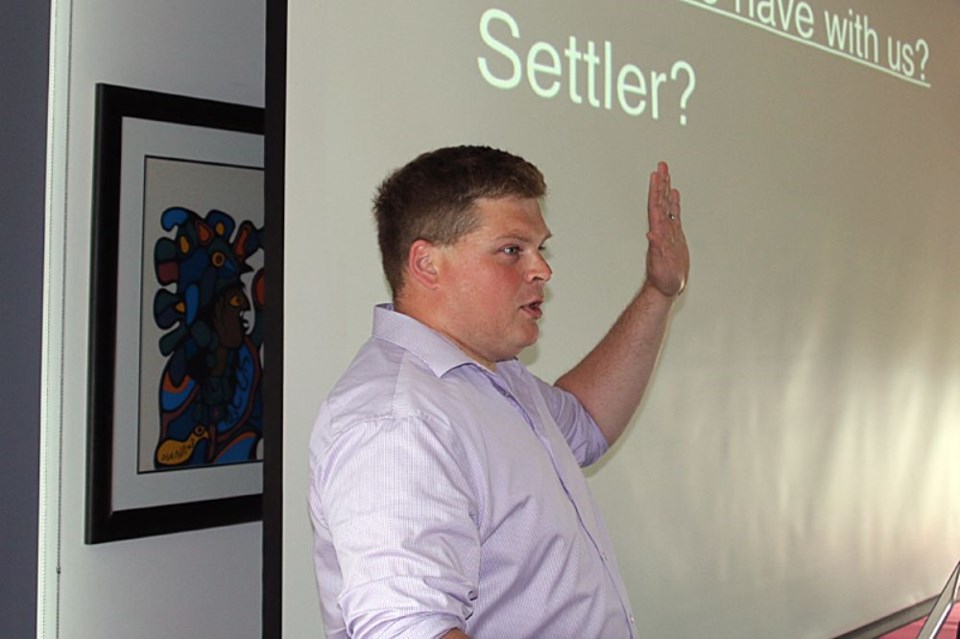THUNDER BAY – Dave Cryderman is the first to admit there’s an issue with him leading an anti-racism workshop.
“The presentation has a problem in that I’m a white man leading this discussion about racism and colonialism. That is full of problems,” he said.
“We’re going to focus on some of those problems and why that is a problem, what is our position? Really, this is an attempt to interrogate power and how power is attached to skin colour.”
Cryderman is facilitating a series of three workshops organized by Diversity Thunder Bay called The White Problem, with the first being held Tuesday at the Mary J.L. Black Public Library, focusing on the foundations of settler colonialism.
A career mental health worker, Cryderman said his eyes were opened to racism in the aftermath of the 2013 James Street Swing Bridge fire and the vitriol that filled many online posts.
He started wanting to learn about how to address racism, though he acknowledges he’s never been on the receiving end.
“I realized most people in my position never really had to experience (racism) or understand it,” Cryderman said. “I think it’s important we get together and talk about it to try to deepen our understanding of it so we don’t replicate problems and we can try to get down to some of the root issues.”
Diversity Thunder Bay member Paul Berger said nearly 30 people, some representing a number of different community organizations, signed up for the workshop.
While Berger said there is a certain segment of the population who won’t change, the hope is to reach people who stand on the sidelines and observe racism behaviour to convince them that it’s not right.
“If there are people who can’t be changed and will always be doing things we find uncomfortable and inappropriate and we’re not going to be able to change them, if we change the environment they’re in to be one that says this beahaviour is unacceptable it will stop,” Berger said.
The takeaway hope from the workshops is that it will help form a network of people that recognize racism and how it persists in modern Canada.
“One of the goals is trying to build a bit of capacity and a bit of community for people to establish a baseline about what racism is, what white supremacy is, what colonialism is and what our role in it is and how we benefit,” Cryderman said.
“I don’t think it’s responsible for us to talk in terms of ending racism. I think if you want to talk about ending racism you have to talk about ending the structure of our society. The best we can hope for is to do a bit of harm reduction to try to get ourselves ready and in a place to be effective allies to people who are living with the struggle.”
Sign in or register
- Messages
- Post a Listing
- Your Listings
- Your Profile
- Your Subscriptions
- Your Likes
- Your Business
- Support Local News
- Payment History
Registered Users
Already have an account?
New Users
Create a free account.
